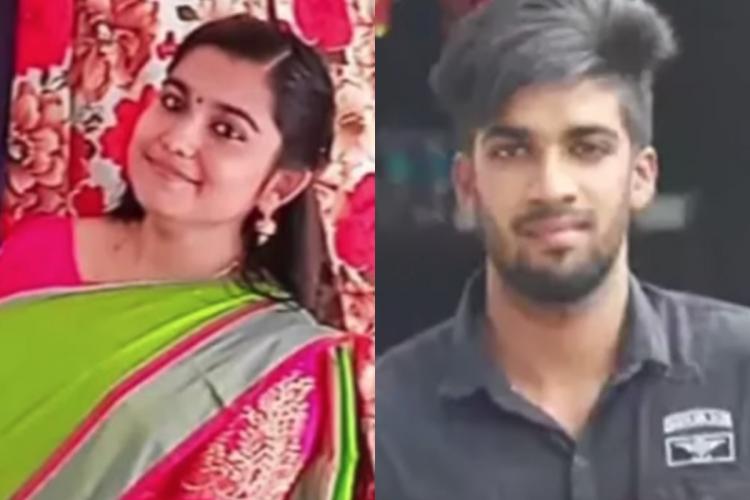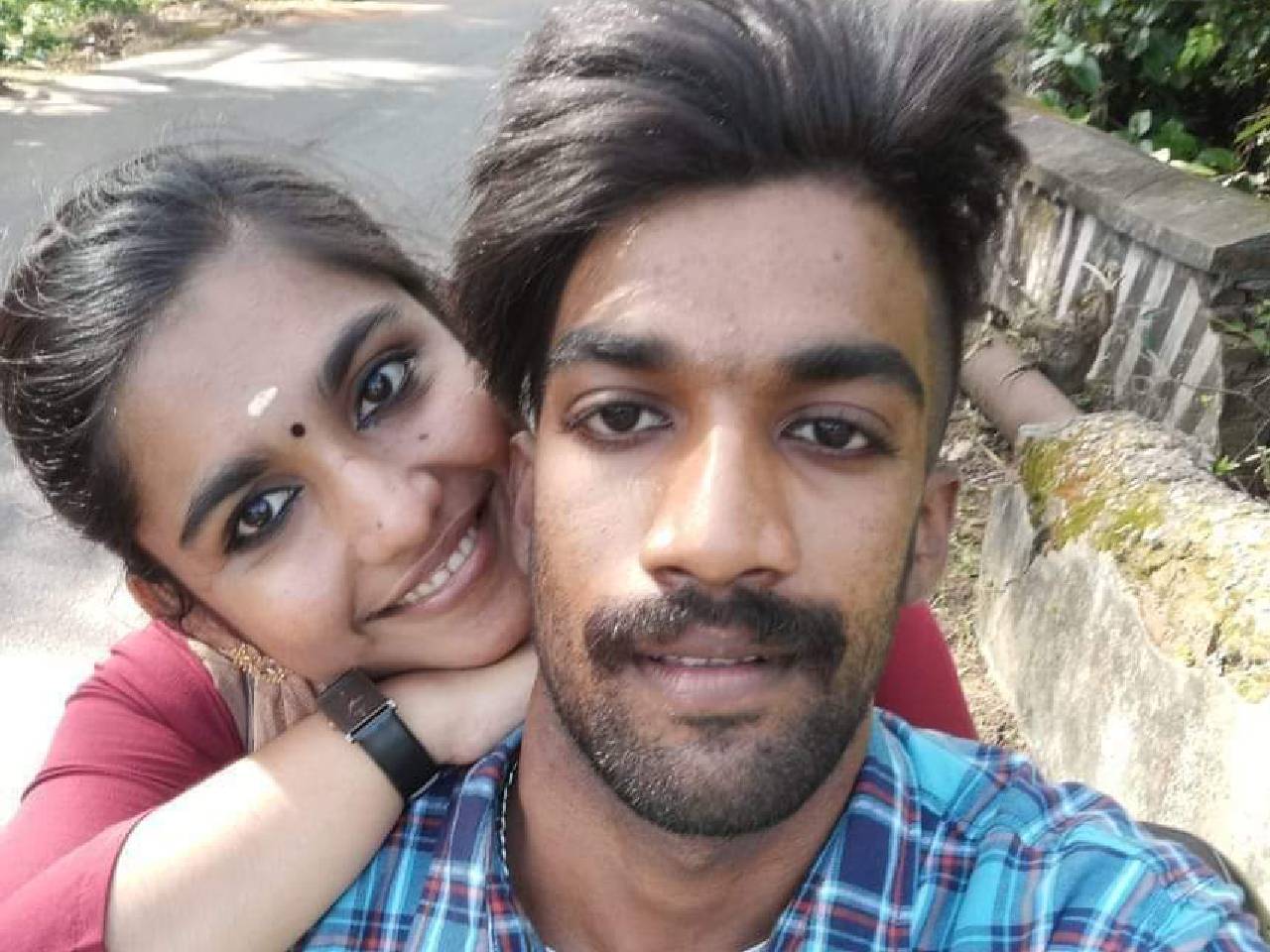A 22-year-old woman who confessed of having poisoned her boyfriend was taken into custody. Greeshma, the accused, had mixed poison in an ayurvedic concoction that she gave Sharon, 23 years old, as he refused to break up.
We grow up watching and appreciating male protagonists obsessing over their female counterparts. We call it “romantic”. Women are portrayed as trophies men can win. They are just plot devices, and we absorb this content like a holy grail collectively as a society.
Greeshma and Sharon’s relationship began during a college trip. She tried distancing herself from the affair when her marriage was fixed by her family. Sharon, however, refused to accept the end of the relationship. She also stated being in fear of Sharon exposing their photos and videos to her fiance as he refused to delete them despite her request.
Men often find it difficult to accept refusal from women. They are conditioned to believe that they are the ones entitled to make or break a relationship. That considering and listening to a woman’s wish, effeminate a man, and question a man’s masculinity is a much-encouraged taunt in every male group, as well as a comedy trope in mainstream media. Men’s refusal to respect a woman’s consent is a deep-rooted problem, forcing many women to continue being stuck in toxic relationships or marriages for years, even their entire lives. Male-dominated toxic relationships are, thus, very common. Greeshma and Sharon’s relationship becomes a case of toxicity, in this sense as Sharon emotionally abused Greeshma by refusing to respect her decision to end the relationship, and violated her privacy.

The most effective weapon a man can hold against another woman is her honor. Female honor, in Indian society, plays a pivotal role in the hierarchical family structure. The honor of a woman is protected like a treasure in most brown households. It is equated with material wealth and is a symbol of pride. This honor lies in the female body and sexuality.
Women’s bodies have constantly faced moral policing, diminishing them to mere physical being as if a biological extension of themselves. Hence, yet again, the female body becomes a threat, a site of violence and violation. Like Sharon, men hold this honor as a tool to force women into doing things against their will, in this case, make Greeshma stick to the relationship. Here, a situation can be very well imagined where Greeshma and her family’s honor is ravaged after the photos and videos were exposed, expectedly breaking her marriage, while Sharon remained scot-free without his character or reputation being dissected.
With police investigation, more intimate details came in to light. Sharon also threatened Greeshma that she will not be happy without him, and no one can be with her if not Sharon. Men have historically shown dominance over women by treating them as their possession, both physically and emotionally. In a society that teaches men to be the superior gender, reducing the entire existence of women to mere pleasure objects, it is extremely difficult to pursue equality. Even with all the talk about equality and justice, women are still perceived as possessions, be it in the eyes of their partners, or the family treating them as wealth.
Towards the second decade of the twenty-first century, ‘honor killing’ was a widely used term for the Khap Panchayats, a village council set on traditional beliefs of the Jat community in Haryana which gave verdicts and was responsible for killing multiple couples who dared to choose ‘inappropriate’ partners. Traditionally, to safeguard their daughter’s honor, patriarchal families have imposed restrictions on women, as well as committed honor killings to save the family from humiliation.
The case of Greeshma just proves this point. The subjectivity of women evaporates with their commodification and sexual objectification by the male-dominated society. There has been extensive study on the gender roles of women being the “fairer sex”, and men the “stronger sex”, these gender roles further intensify male domination. Judith Butler, in her Gender Performativity theory, states that, gender is an act performed repeatedly, making people adapt to their specific gender roles. The internalization of these gender roles results in women observing them and automatically being the more submissive gender. The objectification of women also facilitates the gender hierarchy. This male perception is incentivized by several other factors. One of them is the media. Media plays a violent role. We grow up watching and appreciating male protagonists obsessing over their female counterparts. We call it “romantic”. Women are portrayed as trophies men can win. They are just plot devices, and we absorb this content like a holy grail collectively as a society.
Since society rips out women’s individual identities, consequently the empathy for them decreases. So is the case of Greeshma. We read headlines stating her heinous crime in print or online, focusing on her being a criminal or a victim, there is no in-between. Crime committed by any gender is a crime. But how we as a society deal with it is different. Cis-men assaulters in a lot of cases get public validation because their actions are justified in the name of “love”. The ‘love’ we know, and accept is a heterosexual, hierarchy-maintaining propaganda.

Privileged users of social media make memes and comments on such sensitive issues from their socially elevated positions. They either completely villanize the accused women or downplay their crime. This is because only two kinds of women can exist – the submissive victim and the rebel deviant. We do not look beyond these designated categories since that will require us to look beyond the formatted gender performances. In the effort to fit a woman into specific categories, we overlook other underlying factors like women internalizing the hierarchical structure to an extent where they themselves perpetuate it through violent measures.
We cannot ignore that another driving factor of Sharon’s murder is the Brahmanical dogma of caste. Police suspect Greeshma’s family being involved in poisoning Sharon, especially her mother and uncle. Family is a major perpetrator of Brahmanical patriarchy. Uma Chakravarti in her essay “Conceptualising Brahmanical Patriarchy in Early India: Gender, Caste, Class and State” explains that the caste structure is safeguarded by the practice of patriarchy.
Greeshma’s guilt is constantly replaced by her academic excellence, hiding her privileged social power among the two, whereas Sharon’s marginalization has been debated. There always lies a power-play concerning cases of people belonging to different castes.
The caste system continues to shape the majority of Indians’ daily lives. Caste rubrics and practices are still very much engrossed in modern-day lives. Traditionally, to safeguard their daughter’s honor, patriarchal families have imposed restrictions on women, as well as committed honor killings to save the family from humiliation. Greeshma, with further interrogation, has also revealed that one of the reasons she broke up was because of their different castes. The police believe that this can also be a case of planned murder. Families separating marriages due to differences in caste and religion is not a new phenomenon. They have often taken violent steps against couples who chose to marry outside their caste or religion, killing one or both.

Sociologist, feminist legal scholar, and writer Pratiksha Bakshi uninhibitedly calls it “custodial deaths”, referring to those who are killed for violating the norms of marriage and being in the custody of their own families. Towards the second decade of the twenty-first century, ‘honor killing’ was a widely used term for the Khap Panchayats, a village council set on traditional beliefs of the Jat community in Haryana which gave verdicts and was responsible for killing multiple couples who dared to choose ‘inappropriate’ partners. With incidents like Sharon’s murder, the persistent actions of caste discrimination are exposed. Marriage, therefore, becomes not a union of love, but a binding heteronormative institution forced on people to tame them within the rules of caste and patriarchy. It takes the country a hundred years backward. Women can also be propagators of patriarchy, ironically them being further affected by it. Greeshma’s violence is an act of generational practice of Brahmanical patriarchy.
Despite the fact that the class distinction is accessible to continual and dependable reformulation, the sexual role appears to be critical to the production of teachings and leading principles of the caste system. Male-controlled construction and class locus are both linked and disjunctive in relation to changing forms of production. After the incident, the media has continuously tried to divert the caste perspective of the crime to either an act of Greeshma’s eccentricity or Sharon’s aggressiveness towards his partner making the girl a victim figure.
Greeshma’s guilt is constantly replaced by her academic excellence, hiding her privileged social power among the two, whereas Sharon’s marginalization has been debated. There always lies a power-play concerning cases of people belonging to different castes. The personal is political. The manifestation of these social issues at the micro, inter-personal level, can be examined from a macro perspective. The macro-perspective will give us an actual picture of the society which refuses to acknowledge its concealed socio-political problems. The urge is to not examine the case in black and white, but rather view it as a horror of misogyny and Hindu conservatism.
About the author(s)
Simantini Sarkar is a student, writer, and feminist, as well as a literature and film enthusiast. She has completed her Bachelor’s degree from Bethune College, Kolkata, and her M.A. in English from Savitribai Phule Pune University. She writes for various online and offline magazines and is a budding translator. Simantini is also an aspiring research student. Her interests include topics
related to gender, women, politics, and pop culture.





“Men often find it difficult to accept refusal from women. They are conditioned to believe that they are the ones entitled to make or break a relationship. ”
Do men have the choice to break a relation without serious consequences in India? One often comes across consensual relations becoming “non-consensual” overnight when the men want to break up, with the latter ending up in jail. Yes, this again is another facet of toxic patriarchy.
Engaging in a relation outside the marriage has become a dangerous affair in India. Instead of making it safe for the women, we have ended up making it unsafe for youngsters and given sharper tools to the flag bearers of toxic patriarchy.
Sorry to say, this article was laced with feminism. I respect your view but nothing gives Greeshma the right to take the guy’s life. She had legal ways to take care of the whole matter, which in turn she got herself involved in by killing the guy. I am not aware if the guy was forcing himself on her and not breaking up or whatever, but she did a detailed study on how to kill the guy, her google history shows it as per police records. Lacing the drink with pesticide and making him drink it.
Toxicity – yes!
But definitely not a correct way.
Who in their right mind does that?
Well written article in terms of language but this article is far away from the truth or motive behind the murder.The truth is that it was a planned murder based on superstitious belief. A soothsayer had told the family that Greeshma’s first groom would die prematurely and she will be able to get a wealthier groom in her second marriage. So, she along with her family planned this whole thing. She first got married to Sharon and after that she tried several times to kill him in greed of getting married to another wealthy guy. There is an article in Hindu and you can also refer several other sources too because it is a murder done on the basis of superstition and you are portraying this as honor killing and just showcasing everything from a feminist point of view..which is however biased and half truth.Please do some research before writing false news or half information.